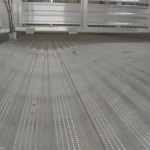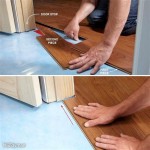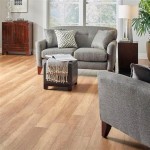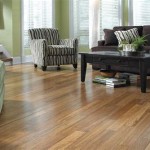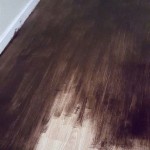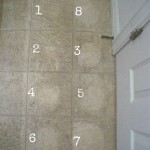Types of Natural Stone Flooring
Natural stone flooring has been a desirable choice for centuries, prized for its durability, aesthetic appeal, and unique character. Its inherent beauty and inherent variation in color, texture, and veining contribute to the distinctiveness of each installation. Choosing the right type of natural stone flooring requires careful consideration of the intended use, traffic levels, maintenance requirements, and desired aesthetic.
The following sections explore several popular types of natural stone flooring, outlining their characteristics, advantages, disadvantages, and appropriate applications. Considerations regarding installation, maintenance, and sealing are also addressed.
Granite Flooring
Granite, an igneous rock formed deep within the Earth's crust, is renowned for its exceptional hardness and durability. Its composition primarily consists of quartz, feldspar, and mica, contributing to its speckled appearance. Granite is highly resistant to scratches, stains, and heat, making it a practical choice for high-traffic areas such as kitchens, hallways, and commercial spaces.
One of the major advantages of granite flooring is its longevity. Properly installed and maintained granite can last for decades without showing significant signs of wear. Its dense structure also makes it relatively impervious to water absorption, inhibiting the growth of mold and mildew. Furthermore, granite is available in a wide range of colors and patterns, allowing for diverse design options.
However, granite flooring can be more expensive than other natural stone options. Its hardness also makes it more difficult to cut and install, often requiring specialized equipment and expertise. While granite is stain-resistant, it is not entirely stain-proof and should be sealed periodically to protect against spills and contaminants. The coldness of granite can also be a consideration, especially in colder climates, although this can be mitigated with the use of radiant floor heating.
Granite tiles are available in various sizes and finishes, including polished, honed, and textured. Polished granite offers a glossy, reflective surface, while honed granite has a matte finish that provides better slip resistance. Textured granite provides an even more slip-resistant surface, making it suitable for outdoor applications or areas prone to moisture.
Regular cleaning with a pH-neutral cleaner is essential for maintaining granite flooring. Abrasive cleaners should be avoided, as they can scratch the surface. Periodic resealing is recommended to maintain its stain resistance and longevity.
Marble Flooring
Marble, a metamorphic rock formed from limestone or dolomite, is celebrated for its elegant veining and luxurious appearance. Its smooth, polished surface and characteristic swirls of color make it a popular choice for bathrooms, entryways, and formal living areas.
The aesthetic appeal of marble is a significant advantage. Its timeless beauty and unique patterns can enhance the visual appeal of any space. Marble is also relatively soft compared to granite, making it easier to cut and shape. This allows for more intricate designs and custom installations.
However, marble is more porous than granite and more susceptible to staining and scratching. Acidic substances, such as vinegar and citrus juices, can etch the surface of marble, leaving permanent marks. It also requires more diligent maintenance than granite to preserve its appearance. Its softness can also make it less suitable for high-traffic areas where it is more likely to be scratched or worn.
Different types of marble exhibit varying degrees of porosity and hardness. Carrara marble, known for its subtle gray veining, is a relatively durable option, while Calacatta marble, characterized by its bold, dramatic veining, is more porous and requires more careful maintenance. The choice of marble should be based on the intended use and the level of maintenance the homeowner is willing to undertake.
Marble flooring should be sealed regularly to protect it from stains and moisture. Spills should be cleaned up immediately to prevent etching. Regular cleaning with a pH-neutral cleaner is essential, and abrasive cleaners should be avoided. Polishing can help restore the shine of marble flooring that has become dull or scratched.
Limestone Flooring
Limestone, a sedimentary rock composed primarily of calcium carbonate, offers a natural, earthy aesthetic. Its warm tones and subtle textures make it a versatile choice for both indoor and outdoor applications. Limestone is often used in kitchens, bathrooms, patios, and walkways.
One of the key advantages of limestone is its natural appearance and texture. Its subtle variations in color and pattern create a warm and inviting atmosphere. Limestone is also relatively soft and easy to work with, allowing for a variety of finishes and designs. It is a good option for creating a rustic or natural look.
However, limestone is more porous than granite or marble and is more susceptible to staining and water damage. It requires regular sealing and careful maintenance to protect its appearance. Acidic substances should be avoided, as they can etch the surface. Limestone is also relatively soft, making it more prone to scratching and wear, especially in high-traffic areas.
There are different types of limestone, each with its own unique characteristics. Some types of limestone are denser and more durable than others. The choice of limestone should be based on the intended use and the expected traffic levels. Tumbled limestone provides a textured, slip-resistant surface, while honed limestone offers a smoother, more refined appearance.
Limestone flooring should be sealed regularly with a high-quality penetrating sealant. Spills should be cleaned up immediately to prevent staining. Regular cleaning with a pH-neutral cleaner is essential, and abrasive cleaners should be avoided. Periodic resealing is recommended to maintain its stain resistance and longevity.
Slate Flooring
Slate, a metamorphic rock formed from shale or mudstone, is known for its distinctive layered appearance and rich, earthy tones. Its natural cleft surface provides excellent slip resistance, making it a popular choice for entryways, mudrooms, and outdoor patios. Slate is also relatively durable and resistant to stains.
The natural slip resistance of slate is a significant advantage, especially in areas prone to moisture. Its unique layered appearance adds character and visual interest to any space. Slate is also relatively resistant to stains and fading, making it a low-maintenance flooring option.
However, slate can be more expensive than some other natural stone options. Its uneven surface can also be challenging to clean and maintain. The dark color of slate can also make a room appear smaller and darker. Furthermore, some types of slate can be brittle and prone to chipping or cracking.
Slate tiles are available in various sizes, shapes, and colors. The natural cleft surface of slate provides a textured, slip-resistant finish. Honed slate offers a smoother, more refined appearance, but it is less slip-resistant. The thickness of slate tiles can vary, so it is important to choose the appropriate thickness for the intended use.
Slate flooring should be sealed with a penetrating sealant to protect it from moisture and staining. Regular cleaning with a pH-neutral cleaner is essential. Avoid using abrasive cleaners or scrubbing pads, as they can damage the surface. Periodic resealing is recommended to maintain its water resistance and appearance.
Travertine Flooring
Travertine, a sedimentary rock formed from mineral springs, is characterized by its distinctive pitted surface and warm, earthy tones. Its unique texture and natural variations make it a popular choice for bathrooms, kitchens, and patios. Travertine is often used to create a rustic or natural look.
The natural beauty and unique texture of travertine are major advantages. Its warm tones and distinctive pitting add character and visual interest to any space. Travertine is also relatively easy to work with, allowing for a variety of finishes and designs.
However, travertine is more porous than granite or marble and is susceptible to staining and water damage. The pits and holes in travertine can also trap dirt and debris, making it more challenging to clean and maintain. It requires regular sealing and careful maintenance to protect its appearance. Acidic substances should be avoided, as they can etch the surface.
Travertine tiles are available in various finishes, including honed, polished, and filled. Honed travertine has a matte finish with open pores, while polished travertine has a glossy, reflective surface with filled pores. Filled travertine is more resistant to staining and easier to clean than unfilled travertine.
Travertine flooring should be sealed regularly with a penetrating sealant. The pits and holes in unfilled travertine should be filled with grout or epoxy to prevent dirt and debris from accumulating. Spills should be cleaned up immediately to prevent staining. Regular cleaning with a pH-neutral cleaner is essential, and abrasive cleaners should be avoided. Periodic resealing is recommended to maintain its stain resistance and longevity.
Sandstone Flooring
Sandstone, a sedimentary rock composed primarily of sand grains, offers a natural, textured surface and warm, earthy tones. Its porous nature and good slip resistance make it a suitable choice for patios, walkways, and pool decks. Sandstone is known for its rustic charm and natural variations in color and pattern.
The natural texture and excellent slip resistance of sandstone present significant advantages, particularly in outdoor applications. Its warm, earthy tones create a welcoming and natural ambiance. Sandstone is also relatively easy to cut and shape, allowing for flexible design options.
However, sandstone is highly porous, making it very susceptible to staining and water damage. It requires frequent sealing and careful maintenance to prevent degradation and discoloration. Its softer nature also means it is more prone to scratching and wearing down over time, especially in high-traffic areas. Exposure to harsh weather conditions can accelerate its weathering process.
Sandstone tiles and pavers come in a variety of sizes, shapes, and colors, reflecting the diverse mineral compositions of different sandstone formations. The surface texture can range from relatively smooth to highly textured, depending on the degree of weathering and the presence of natural clefts. Some sandstone varieties contain iron oxides, which contribute to their characteristic reddish or brownish hues.
Maintaining sandstone flooring involves regular cleaning with a pH-neutral cleaner and prompt removal of any spills to prevent staining. Applying a high-quality penetrating sealant is crucial to protect the stone from moisture intrusion and enhance its stain resistance. Depending on the sealant used, periodic reapplication may be necessary to maintain its effectiveness. Pressure washing should be avoided, as it can damage the surface of the sandstone and accelerate its erosion.

6 Types Of Natural Stone Tiles That You Should Know About Empire Granite Dayton

Stone Flooring Pros Cons Tile Urban Customs

A Guide To Stone Tile Types And Finishes Carved Creations

Top 5 Most Common Types Of Stone Tiles Firea

Trend Alert Natural Stone Planks Msi Blog

Types Of Natural Stone For Your Home The Top Inc

Types Of Stone Flooring Costs Per Sq Ft Urban Customs

Tips For Choosing The Natural Stone Flooring Your Home

4 Tips For A Comprehensive Glossary Of Natural Stone

Diffe Types Of Stone Flooring
Related Posts

